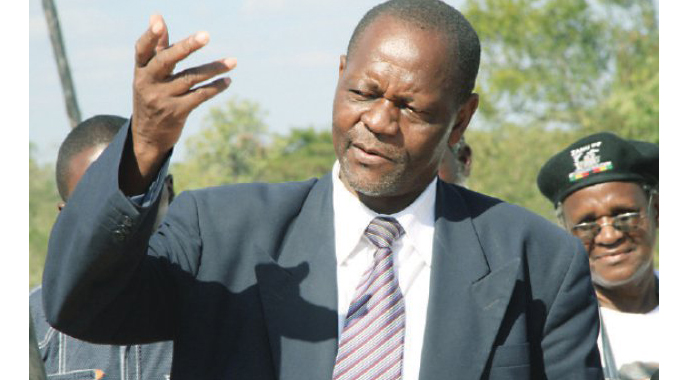DRM model pays dividends for Zimbabwe

Thupeyo Muleya, Beitbridge Bureau
THE Domestic Resources Mobilisation (DRM) approach is paying dividend for Zimbabwe, which has been able to sustain its development programmes despite limited access to credit lines as a result of sanctions.
The model has seen the Zimbabwe Revenue Authority (Zimra) being able to collect up to US$39 billion revenue between 2001 and 2020.

Minister of State for Provincial Affairs and Devolution for Matabeleland South, Abednico Ncube, says DRM has helped the country to withstand the adverse effects of sanctions imposed on Zimbabwe by Western countries since the turn of the millennium.
In a speech read on his behalf by Beitbridge District Development Coordinator (DDC), Mrs Sikhangazile Mafu at an occasion to celebrate Zimra’s 20th Anniversary on Saturday, Minister Ncube commended the tax collector for a good job.
“To this end, the authority remains a vital cog to the development of our economy hence our gathering tonight as we celebrate 20 years of service excellence and commitment to the people of Zimbabwe,” he said.
Minister Ncube said over the years, Zimra has fully embraced the concept of Domestic Resource Mobilisation.

Domestic Resources Mobilisation (DRM)
He said this has enabled the Government to meet its obligations to the people of Zimbabwe through the provision of education, healthcare, water and infrastructure development.
“Cumulatively Zimra managed to contribute a total of US$39, 8 billion to the state from 2001 to 2020.”
Minister Ncube said since Zimra’s formation in 2001, the agency has provided more than 90 percent of the country’s budgetary resources annually.
He said Zimra has for a number of years surpassed targets set by Government.
Minister Ncube said since 2003, the parastatal facilitated exports worth US$58,2 billion and imports worth US$86 billion and only missed targets by a whisker in 2001, 2009, 2014 and 2016.
“This has been as a result of different internal shocks that the authority has had to grapple with over the said years,” he said.
Minister Ncube said the Second Republic will continue to build a better and modern Zimbabwe ‘brick by brick’ in line with the envisaged vision of an upper middle-income economy by 2030.
Zimra has 2 750 employees countrywide and about 618 of them were part of the pioneer group that joined the authority at its formation in 2001.
In terms of taxation and national development, Minister Ncube said Government will continue to strive and demonstrate the highest level of transparency when it comes to national resources and revenue management.
He said in the last four years the Government’s pro-people and pro-development administration policies have prioritised the development of national infrastructure, food security, health and social services.
“The Government has made it a point that no province or district will be left behind in terms of the various strands of development we are rolling out,” said Ncube.
The road infrastructure development is increasingly proving to be a corridor of development as evidenced by the number of direct and indirect jobs that are being created in that sector.
— @tupeyo









Comments